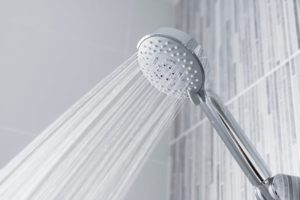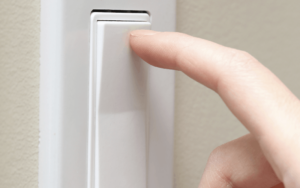Should I Turn Off My AC To Save Money on My Electric Bill?
It’s a simple fact: we cannot live without AC in Florida, and if we do, we probably don’t like it. In a typical home, air conditioners use more electricity than other appliances and account for nearly 5% of the total energy consumed in the U.S.
Of course, we all want to save on energy bills, especially because costs are increasing. But there are many misconceptions about saving on AC costs while also maintaining a comfortably cool home.
Chief among them is the notion that turning the AC on and off more frequently saves money. But in fact, this can actually cost you more.
This blog will explain why you shouldn’t turn your AC on and off and offers useful tips that can help you save money on your electric bills:
- Check Your Thermostat Settings
- Use Your Ceiling Fan
- Replace Your Air Filters
- Optimize Your Windows
- Install Insulation
- Get Regular AC Maintenance
Want energy-saving advice from trusted AC professionals?
Contact Climate Design! We provide 5-star service to hundreds of Florida homeowners who want to save money on their electric bills. We can install thermostats, ceiling fans, and insulation and maintain your AC for you.
Call us today at (727) 295-1572 or click the button below for service 7 days a week until 8pm.
Why You Shouldn’t Turn Your AC On and Off
Since appliances don’t need to run while you’re away from home, a homeowner might shut down their AC completely before leaving for work or a vacation. Then, when they return to a stifling hot home, they will turn the AC back on and set the thermostat to an extremely cold temperature, assuming that a lower setting will cool their home faster.
Unfortunately, lowering a thermostat to a significantly colder temperature won’t cool a home any quicker. But what it will do is increase utility bills unnecessarily.
Why?
When there is a massive gap between the current indoor temperature (for example, 90 degrees) and the temperature set on the thermostat (say, 60 degrees), your AC ends up straining to meet your desired temperature. Because it doesn’t have the capacity to remove that much heat quickly, it then has to run harder and longer. Even worse, the overstrain can lead to a shorter system lifespan and the risk of paying for a replacement sooner than necessary.
Letting your home get excessively hot and humid when you’re out for an extended period of time can cause other problems, including:
- Overworking your refrigerator. The hotter the indoor air, the harder your refrigerator must work to keep your perishables cool, and the sooner it could break down.
- Spoiling and damaging possessions. Food in your pantry or medicine in cabinets could spoil due to high indoor temperatures. Excessive heat can also damage valuable electronics and art.
- Damaging your home. An AC doesn’t just cool your home—it dehumidifies too. High humidity can cause swollen doors, cracked plaster, mold growth, and warped wood. When you turn off your AC, you’re stripping away a barrier that is protecting your home from the effects of humidity.
Air conditioners operate most efficiently when there is a reasonable gap between the indoor temperature and your cooling request. So turning your AC off to save money really doesn’t work in the long run. But you can still save on electric bills by using other proven strategies. The following tips are simple and cost-effective—and they work.
Check Your Thermostat Settings
First, check that your thermostat fan is on “AUTO.” When your thermostat setting is “ON,” it will run nonstop even if the system is not cooling the home. A constantly running fan will increase your utility bills and produce more humidity in your home because it will just blow warm air around without the AC absorbing moisture and heat.
Second, we recommend that Florida homeowners increase their thermostat by 6-8 degrees while they’re away, asleep, or during peak hours for maximum cost savings and minimum discomfort. FPL (Florida Power & Light Company) considers 6am-10am and 6pm-10pm to be peak demand hours and the cost of electricity usage will increase at those times. So, increasing the setting on your thermostat during those windows will deliver the most cost savings.
If you maintain a regular daily schedule, you can install a programmable or smart thermostat so you don’t have to remember to change the temperature manually every day. You can even control the temperature using an app on your phone if you forget to increase it.
Use Your Ceiling Fan
If your home has ceiling fans, you have a secret weapon at your disposal. They create a windchill effect on your skin that makes you feel cooler. Ceiling fans can let you increase your thermostat temperature without worrying about overheating.
Pro Tip: Run your ceiling fans in rooms with people in them because the windchill effect only works on people—not rooms.
Need to install a ceiling fan? Install the fan around 7-9 feet above the floor and 10-12 inches beneath the ceiling for the best windchill effect. Installing ceiling fans that are appropriately sized for each room can also help you save money.
Replace Your Air Filters
When was the last time you changed your air filter? Regularly changing air filters helps you avoid overstraining your AC, which can lead to increased energy costs.
As we’ve talked about above, overstraining your AC doesn’t lead to faster cooling. Dirty air filters block your AC from taking in enough warm indoor air to cool. When air cannot flow freely, your AC system has to work longer and harder to cool your home because it can’t properly absorb heat. This condition lasts until you replace the filter and, with time, can lead to system breakdowns.
When you replace your air filters regularly every 1-3 months, you should make sure you’re also setting the thermostat fan on “AUTO.” Our earlier tip also applies here too. When a thermostat fan is set to “ON,” the fan will dirty air filters more quickly because it is still blowing contaminants into the filter despite the AC not cooling your home.
Optimize Your Windows
Did you know that 76% of the sunlight that hits standard double-pane windows will turn into heat in your home? To lessen the strain on your AC, you can optimize your windows to reduce heat and save money by:
- Installing shades, blinds, drapes, curtains, or shutters to keep out heat. Choose light-colored and lightweight drapes to prevent trapping heat inside.
- Installing window film to block solar heat from entering your home.
Install Insulation
Most homes in the U.S. do not have enough insulation, especially in homes older than 20-30 years. The EPA estimates that homeowners can save an average of 15% on cooling costs by adding insulation to their attics to prevent leaks. When conditioned air leaks out of your home, you’re wasting money.
In addition to keeping a home cooler during hot days, insulation also dampens outside noise, controls humidity levels, and improves your indoor air quality by not allowing pollen to enter.
What type of insulation should you get? Blown-in attic insulation with an R-value of 30 or more can improve a home’s energy efficiency at a moderate price. It’s resistant to fire and can fill in cracks and crevices in the attic.
The R-value measures how well insulation resists heat transfer over time. If your home is over 20-30 years old, your insulation’s R-value is potentially too low for modern standards; you can contact an insulation contractor to verify its current R-value.
Get Regular AC Maintenance
In Florida, bi-annual AC maintenance by a qualified technician helps the system to run more efficiently and avoid overheating. Maintenance can catch problems before they become costly bills or impact how well the AC cools a home. Also, during maintenance, a technician usually changes the AC filter too.
You can save money on regular maintenance by enrolling in a yearly maintenance plan. These plans offer other benefits like priority scheduling and service discounts.
Ready to Save On Your Energy Bills? Contact Climate Design.
Don’t spend another minute wondering how to reduce your energy bills. Climate Design has provided home services for Florida homeowners since 1973, and we continue to operate with a straightforward goal: Do right by the customer, including helping them save money.
We can help you save money by installing a programmable or smart thermostat, ceiling fan, blown-in attic insulation, or performing AC tune-ups.
Our team is NATE-certified for HVAC service and certified by Duke Energy for insulation installs. We hold an A+ rating from the Better Business Bureau, and Florida homeowners trust us for our commitment to whole-home comfort and quality workmanship.
Call us at (727) 295-1572 or click the button below for service today!
Schedule Service
]]>
You May Also Like

Why AC Tuneups Are So Beneficial to Your Comfort and Wallet
Living in Sarasota, FL, means embracing the sunshine and heat. It also means relying heavily on your air conditioner to stay comfortable.… Continue Reading Why AC Tuneups Are So Beneficial to Your Comfort and Wallet…

The Hidden Dangers of Ignoring a Shower Leak in Largo, FL
A shower leak is the last thing you want when you bathe in the morning to get you going or in the… Continue Reading The Hidden Dangers of Ignoring a Shower Leak in Largo, FL…

5 Tips for Preventing Electrical Accidents & Injuries
Electricity is ubiquitous in our day-to-day lives, making it easy to forget just how dangerous it can be. Household electrical accidents &… Continue Reading 5 Tips for Preventing Electrical Accidents & Injuries…

